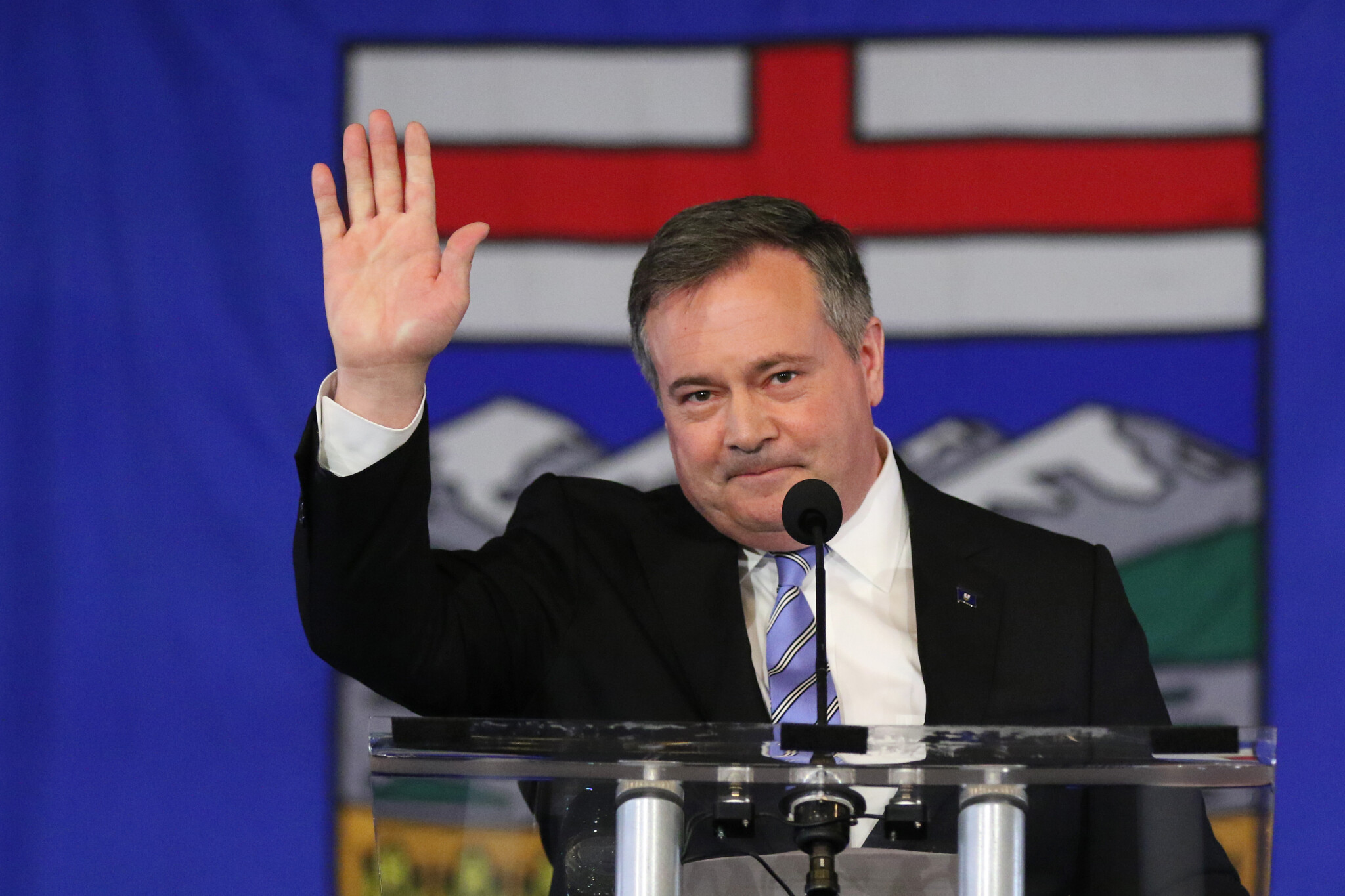Today (May 29th) marks the one-year anniversary of Premier Danielle Smith’s election victory and the second mandate for the United Conservative Party of Alberta (UCP). It also marks the nearly two-year anniversary of Jason Kenney’s resignation as leader of the UCP.
While the 2023 twin victory of Smith—the UCP leadership and provincial election—has been rightly chronicled as a true political comeback drama, the inextricable link between Kenney and Smith has been less explored or recognized.
While Smith is worthy of praise in her own right for her many achievements, when a wide angle is taken of recent Albertan political history the legacy of Kenney looms large. In fact, one can argue that for a host of both positive and negative reasons, Smith’s success as leader of the UCP has been largely thanks to Kenney’s contributions to the province. Put simply: no Premier Kenney, no Premier Smith.
Kenney’s provincial political odyssey not only provided Smith the opportunity to contend for the UCP leadership and then government, but it also prepared the ripe conditions for her success in the 2023 election and then as premier.
This political legacy, which Kenney effectively bequeathed to the province and his successor at the helm of the UCP, should be understood as a political dividend of sorts—one which Smith is now cashing in.
How did we get here?
Prior to contending in the 2019 provincial election, Kenney undertook the massive and historic task of uniting the Albertan Right. This consisted of three distinct campaign efforts within a 10-month time period:
- Winning the Progressive Conservative (PC) leadership contest
- Brokering the PC – Wildrose merger and winning the subsequent UCP leadership contest
- Winning the Calgary-Lougheed by-election
Three straight victories, all of which were secured by at least 61 percent or more of the vote, was no small feat. But these were only parts one (unite the Right) and two (lead the Right) of Kenney’s Triple Crown performance.
Having secured the leadership of the UCP and a seat in the provincial Legislature, Kenney then embarked on part three: a nearly two-year campaign against Rachel Notley and the NDP leading up to the 2019 provincial election. In this time, Kenney stewarded the nomination of 87 UCP candidates and drafted perhaps the most comprehensive provincial platform to date with 300 plus policy commitments.
The UCP approached the 2019 election with unstoppable momentum and ultimately won with 54.9 percent of the vote, securing the most votes of any political party in the history of the province. No party in Alberta had secured such a vote share on its first ballot since Social Credit contested and won its first election in 1935.
The UCP’s first mandate
With such a strong mandate secured, the Kenney-led UCP embarked on an ambitious policy agenda of lowering taxes and cutting regulations, a K-12 curriculum re-write, a new master agreement with doctors, the Fair Deal Panel and referendum, reviving the embattled Keystone XL pipeline, and the passage of 149 pieces of legislation in the UCPs first Legislature.
However, a mere 13 months into the mandate, as the COVID-19 pandemic began to unravel, Premier Kenney declared a public health emergency which set the province on a tumultuous trajectory of battling the pandemic, both physically and politically.
A month later, Alberta and Canada experienced another historic event: Canadian energy began trading for less than $0 as energy markets expeditiously collapsed as demand halted. The North American benchmark crude, West Texas Intermediate (WTI) fell close to $50 on April 20th alone, closing at negative $37.63 USD.
As the pandemic intensified and commodity markets continued to reel, Alberta’s economy suffered, as it was harder hit in 2020 than any other province. While most other provinces experienced a 4-5 percent contraction in GDP compared to 2019, Alberta’s GDP decreased more than 8 percent. Consequently, the province’s budget deficit of $ 7 billion quickly tripled to nearly $20 billion, severely threatening the UCP’s promised path back to balance.
Taken together, these three generational crises combined into a triple Black Swan event for the province and its ambitious new government. Yet, in true Kenney fashion, he took these adverse times head on “like the sturdy prairie buffalo” determined to deliver on the UCPs mandate—and he did, at least for as long as was tenable.
Alberta roars back while Kenney limps
Having inherited a provincial debt load of roughly $13 billion in 2014-2015, Kenney was able to steer a clear course to balance despite pandemic-induced spending, the commodity crash, and the general economic disaster of the pandemic. Astoundingly, the UCP delivered a balanced budget in 2022. Notably the province’s first balanced budget in a decade.
Yet stewarding the economic peril of the province from historic catastrophe to steady relaunch would prove insufficient as the pandemic and its politics exposed Kenney to intense and unrelenting scrutiny from within and without his caucus. When the UCP government re-imposed a near lockdown in the spring of 2021, 17 UCP MLAs wrote an open letter to Kenney decrying the decision.
Despite the UCP caucus subsequently ejecting two MLAs, the malcontent over pandemic policy continued to stew within the ranks of the UCP. The discontent revealed a fatal weakness within the management and ethos of the party the inability to harmonize a staunch prairie libertarianism and a traditional conservativism of ordered liberty.
The fissure of libertarianism that took hold within the UCP thanks to the pandemic ultimately spelled the demise of Kenney while offering Smith a path back to political office and party leadership.
On May 18, 2022, Kenney faced the UCP membership in a scheduled leadership review. Despite securing 51.4 percent of votes, he announced shortly after that he would resign as leader.
The politics of the pandemic proved to be the soft underbelly of Kenney’s leadership. Despite stunting the rise of the NDP, economically managing the pandemic downturn, and undertaking the most significant policy revival in recent provincial history, Kenney was ultimately judged by his caucus and party membership through the solitary frame of his public health choices.
To his most severe critics, however, it wasn’t just Kenney’s pandemic response itself. It was how his pandemic management fulfilled and confirmed a particular narrative—that Kenney was insular, hubristic, and unwilling to govern the caucus collegially.
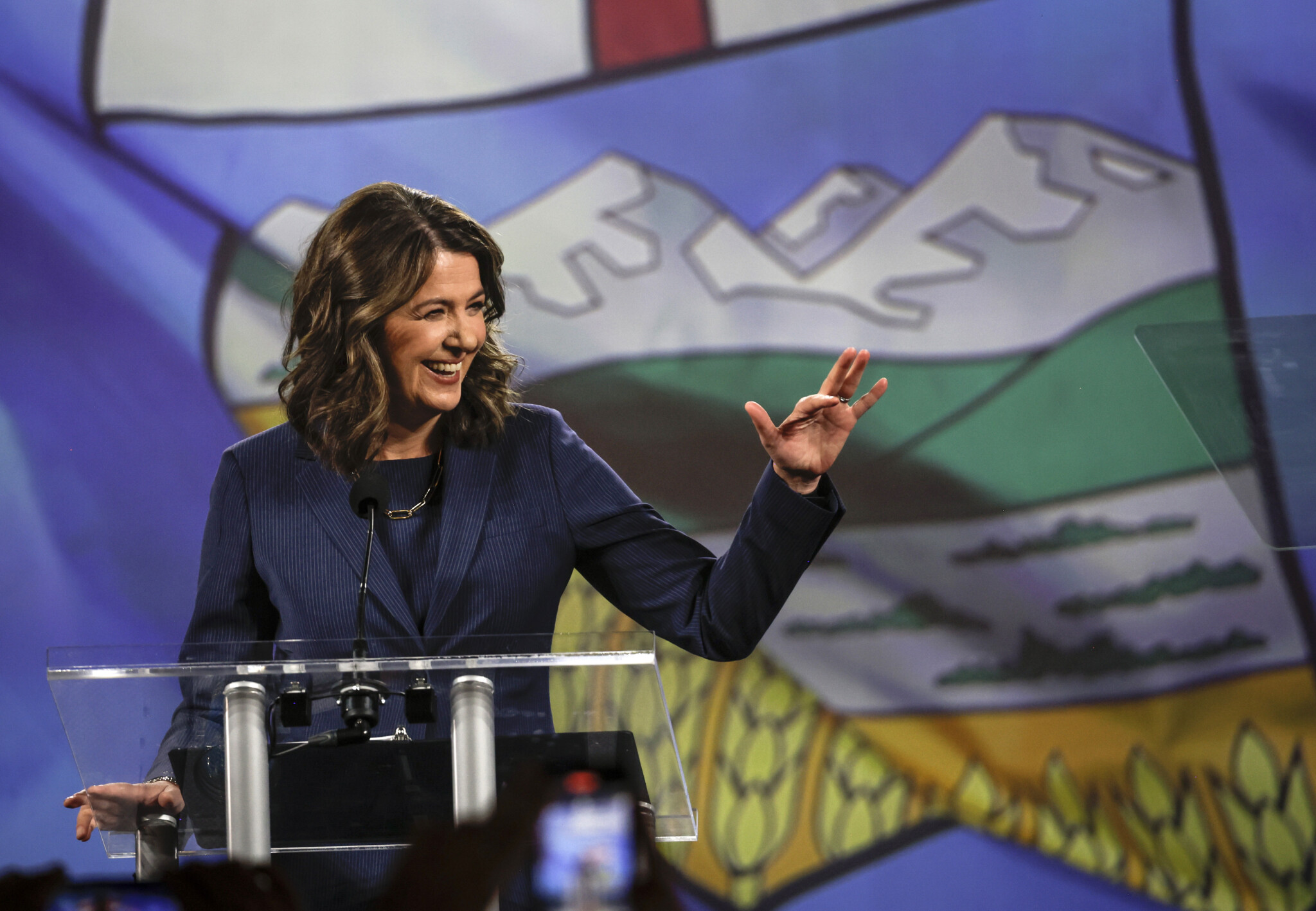
UCP Leader Danielle Smith makes her victory speech in Calgary on Monday May 29, 2023. Jeff McIntosh/The Canadian Press.
The UCP’s second mandate
Given her Wildrose roots, Smith was a natural standard bearer for the libertarian discontent that had brimmed over in the UCP caucus and base. Smith stewarded a successful leadership bid by predictably focusing on commitments to dismantle Alberta Health Services in retribution for the pandemic, protecting personal freedoms, and aggressively asserting provincial jurisdiction. She competently rode the wave of reactionary libertarianism that Kenney’s leadership opened up within the UCP base.
Upon assuming the leadership, Smith was endowed with not only the party that Kenney founded but also its achievements, its potential, and a province that was roaring back from the pandemic.
The healthy economic state that Smith inherited allowed her to deliver timely affordability policies directly to voters ahead of the 2023 election. These included sending cheques directly to Albertans, a fuel tax break, and electricity and natural gas rebates. Such public spending would not have been possible without the effective economic management of the Kenney years, which produced the first balanced budget in a decade while the subsequent rebound of oil prices provided a surprising $10.4 billion budget surplus in 2023.
As Smith led the UCP into the 2023 election she also had the benefit of an exceptionally ambitious and efficient UCP policy record. As has been noted in these pages before, Kenney’s UCP was “the country’s most ambitious centre-right provincial government since the Harris government’s Common-Sense Revolution in Ontario more than a quarter-century ago.”
Practically speaking, this allowed Smith to run on the UCP record, not her own personal record or a particularly ambitious policy agenda. The NDP’s choice to run a predictably negative campaign against Smith and her personal record only confirmed that Smith’s perceived weakness was her record of public musings and potential to self-immolate through a mid-campaign gaffe.
The inherited UCP record cushioned her in the polls and allowed for a bland, cautious, and ultimately successful campaign.
Comparing the 2019 and 2023 UCP platforms reveals that while the 2019 platform was brimming with novel policy commitments, the 2023 platform was rather uncontroversial. Perhaps the most notable platform commitment was the creation of a new 8 percent tax bracket.
Having not led through the pandemic, Smith was also able to contrast herself with Kenney’s pandemic policies, side-step direct responsibility for its management, and focus on the more politically expedient—the political and bureaucratic reforms in the wake of the crisis. This was ultimately a winning proposition.
Conclusion
What is now obvious in hindsight is that Kenney’s dividend is paying out handsomely for Alberta and for Smith herself.
Smith has shown an incredible degree of grit, patience, and political acumen, and she does deserve credit for capitalizing on the value of what Kenney left behind. She too deserves acclaim for converting the dividend into political action and true progress for the province of Alberta. We ought to hold her up on this anniversary of her election victory, but not forget that she is standing on the shoulders of Kenney, the father of the UCP.
Recommended for You

‘The EV subsidies were a Faustian bargain’: Canada’s auto sector is in big trouble
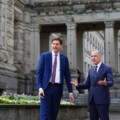
‘This guy is standing in the way’: Jason Kenney on why David Eby is a bigger threat to Canada’s unity than Alberta separatists
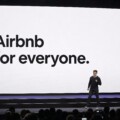
‘There isn’t a one-size-fits-all approach’: The risks of over-regulating short-term rentals in Canada
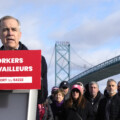
Trevor Tombe: No, Canada didn’t give the U.S. a trillion-dollar gift—but there’s still reason to worry

